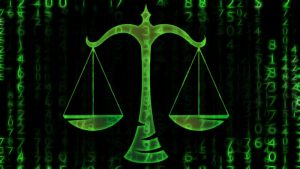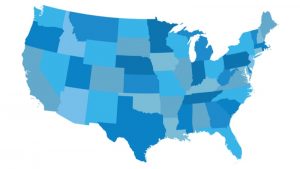Following President Trump’s proclamation of November as National Critical Infrastructure Security and Resilience Month, Secretary of Homeland Security Kirstjen M. Nielsen released a statement on Wednesday saying she and DHS are “committed to strengthening our efforts to protect and secure the infrastructure on which Americans rely, in close partnership with other Federal agencies, state, local, territorial and tribal governments, and the private sector.”
In Tuesday’s midterm election, a total of 144 West Virginians living abroad voted in the largest-ever blockchain-based voting pilot.
The Department of Homeland Security (DHS) is focusing intently on a range of activities to help ensure the security of next week’s mid-term congressional elections, DHS officials said today at an event organized by Fifth Domain.
Wisconsin Gov. Scott Walker last Friday requested that Maj. Gen. Donald Dunbar, adjutant general of Wisconsin, put the state’s National Guard cyber response teams on standby ahead of the midterm elections.
A majority of surveyed U.S. information and technology professionals–86 percent–are concerned about the public sector’s ability to conduct secure, reliable, and accurate elections, according to a new study from ISACA released today.
Michigan Governor Rick Snyder announced Monday that the state will open two new cyber hubs at Northern Michigan University and University of Michigan-Flint. The cyber hubs are an extension of the Michigan Cyber Range, which the state described as “the nation’s largest unclassified cyber range.” The new locations will serve as a hub for security training and workforce development, and hosting events, exercises, and training classes.
California has agreed to delay enforcing its net neutrality law, signed in September, that put the state at odds with the Federal Communications Commission (FCC) and many telecommunications industry groups. The law reinstates Obama-era net neutrality rules and was scheduled to go into effect on Jan. 1, 2019.
The National Association of State Chief Information Officers (NASCIO) today released its ninth annual state CIO survey. Since the survey comes just ahead of an election cycle that will likely cause significant turnover among states’ most senior technology officials, NASCIO–in partnership with Grant Thornton and CompTIA–approached the survey in a new way. NASCIO explained that it used this year’s survey as a “means for the current cadre of state CIOs to offer advice to a new generation of technology leaders that may soon be taking office.”
The National Association of State Chief Information Officers (NASCIO), in partnership with Deloitte, today released its new cybersecurity study which argues CISOs need to launch three “bold initiatives” to ward off advanced cyber threats.
The National Association of State Chief Information Officers (NASCIO) announced yesterday that James Collins, CIO of Delaware, was elected president of the organization. Collins succeeds James “Bo” Reese, CIO of Oklahoma. NASCIO announced election results ahead of its annual conference, which began today in San Diego.













